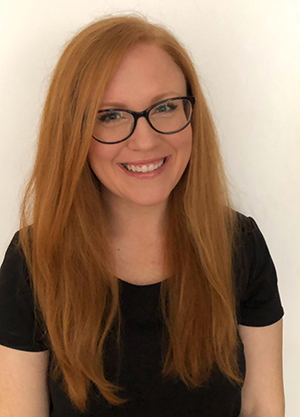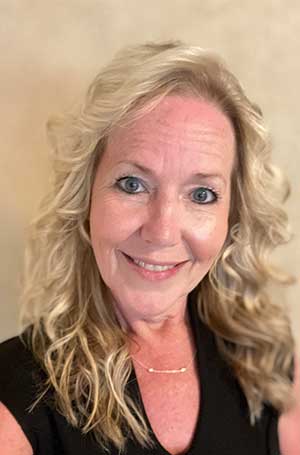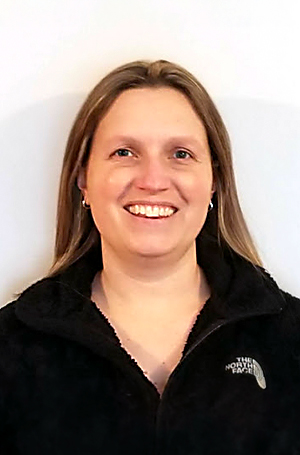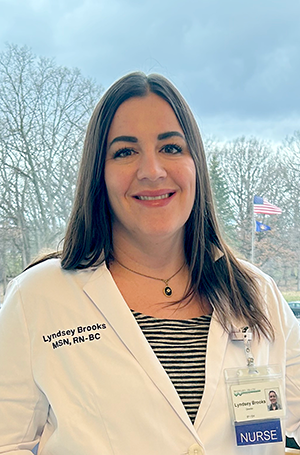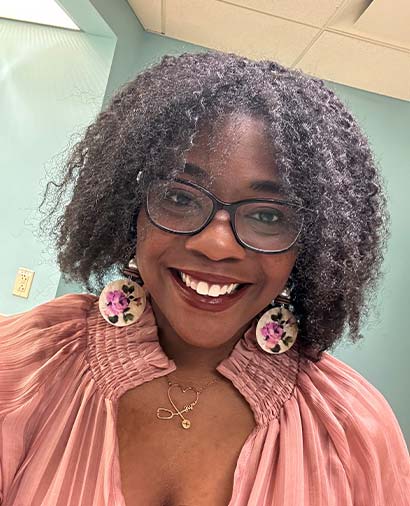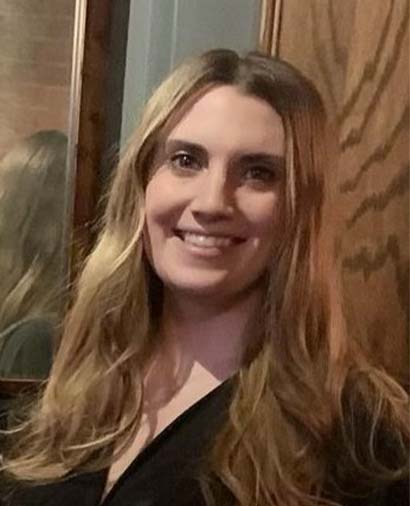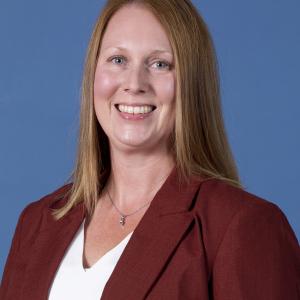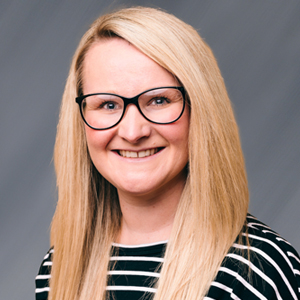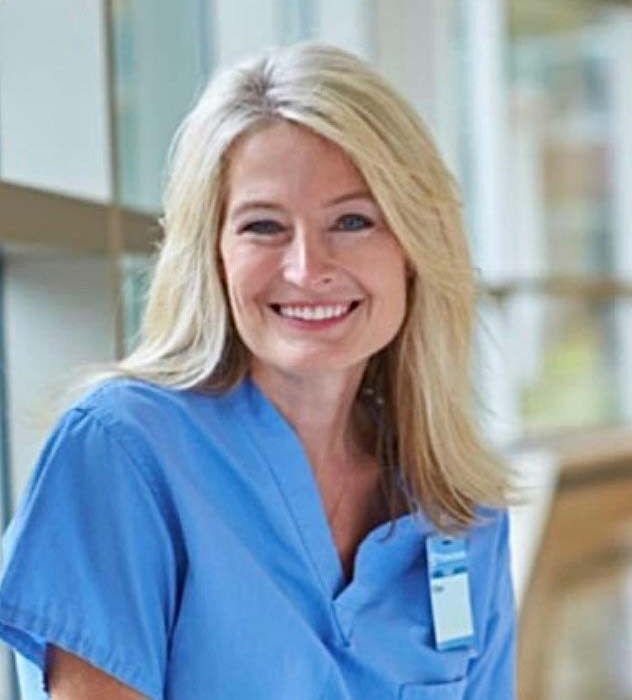Staff Nurse
Warrington and Halton Teaching Hospitals NHS Foundation Trust
Warrington, England
Nursing can take you incredibly far. It is a global practice that is not bound by borders, which is something Tessa Klein, a St. Elizabeth School of Nursing 2019 graduate, learned when she found herself across the pond. Shortly after graduating, she relocated from West Lafayette, IN to her partner’s hometown of Manchester, England. She began working at the Warrington and Halton Teaching Hospitals NHS Foundation Trust where she continues to work as a staff nurse in the accident and emergency (A&E) department, which is equivalent to the emergency room (ER) in the United States. While there are differences among nursing practices around the world, Tessa proves that providing compassionate care is a trait that remains constant globally.
Why did you become a nurse?
I decided to become a nurse because I wanted to have a direct impact on making people’s lives better. I just love the science behind nursing and I love the detective-work thinking. I love being in a nursing position where I actually have interaction with patients all day long and know I can be directly involved in their care. And as a nurse, you have so many options in general you can do a million different things.
Why did you choose to attend St. Elizabeth School of Nursing?
I chose to attend St. E because they have an amazing reputation. I think the key that sets them apart and what initially draws people in is the fact that you start clinicals right away. So there’s a real emphasis on getting experience from the start. They pair their theory with hands-on practice and I loved that because that’s how I learn best. I also loved the small class size because I knew I would get more attention from my professors. I wanted to actually be known by my professors and for them to be invested in my growth, and they absolutely were.
What is your best memory from nursing school?
I honestly don’t have just one. I think in general my fond memory is just the clinicals because every professor I had on clinicals made sure that I could have as many experiences as possible and I felt so supported the entire way. When I graduated, I felt like a nurse and felt like I was ready to take it on because my clinicals were just incredible.
What advice would you give to new nurses?
Be confident in yourself. There will be many times where you feel inadequate or unprepared or that you don’t have the knowledge. Don’t get me wrong, you have a million things to learn but you definitely have enough knowledge. Be okay with asking questions, getting things wrong and signing up for learning experiences, because that’s how you’re going to learn and grow and be able to give really good patient care.
How did St. Elizabeth School of Nursing prepare you for your career?
Honestly, just through the professors in general. They made sure we could learn as much as we could about as many things as we could and that we really understood them. All through school, they really helped us to know how to think like a nurse in every process and everything that we did. That came through the classroom and theory work, but also clinicals. They set us up for success to be able to practice and truly have the experience of being a nurse; what that means from start to finish in a day but also in the long run of your career. I felt really prepared coming out of school to be a nurse.
What do you do in your current role?
In our A&E, we see an average of 250 people a day with anything from minor injuries to really acute issues that need potential resuscitation. I have to be prepared to do anything I need to for any patient who comes through our doors. So I do a lot of hands-on patient care, I do a lot of listening, I do a lot of IVs, I take vitals. In A&E, there are numerous doctors that a patient will see so as a nurse, it’s your job to coordinate among them and make sure that the patient is seeing the doctors they are supposed to. Just a lot of everything!
What do you like most about your current job?
I love that I see and do so much. I love the variety. I love that A&E is acute care, so I’m involved from the start until that person either goes home or goes to a ward. I’m involved in the investigation process of what is going on with them; asking how we can help them in this situation right now and figuring out further care. I love that I’m one of the first people they see. And I like that I have the ability to make their experience as good as it can be. I try really hard to make sure that happens because it can be really scary coming into the A&E.
What is the toughest part of being a nurse?
I think the toughest part is when you’ve done everything you can and it’s not enough. When you wish you could do more. In A&E specifically, I think the toughest part for me is that I don’t necessarily get to see the patient’s whole journey. I set up where they go after we take care of them, but I don’t always get that follow through. So I do miss that and I wish I had a little bit more follow through with patients.
How do you see yourself and your nursing practice through the lens of the school’s mission of preparing nurses to continue christ’s healing ministry
I think that’s exactly what I do in my role especially in England in a socialized Healthcare setting because we see everyone and there’s never that question about income or if they can afford it. We absolutely just open our doors to anyone and that’s exactly what Christ’s ministry is. You don’t turn anyone away, you don’t ask any questions, you just help them if they need help.
If you weren’t a nurse, what would you be?
I think I would be some kind of other care provider in some form, or a scientist. Luckily, I get to do both with nursing!
What do you do when you are not at work?
I love hiking and I like rock climbing. I like outdoor active activities, but I love board games, too! I love a good game night.
Can you describe what your experience has been like on the front lines of the Covid-19 pandemic? How are you and your coworkers adapting?
My experience working on the front lines of the COVID-19 pandemic has been a whirlwind to say the least! Our department quickly changed areas into isolated “respiratory areas” to which patients coming to A&E with any respiratory symptoms were immediately triaged.
Our guidelines and protocols were changing every hour, sometimes every 20 minutes, so we were having to adapt quickly. As time has passed and an immense amount has been learned, we’ve adapted not only the whole department but especially the respiratory areas to streamline our pathways and increase the safety of care for these patients.
What has been the hardest part of this outbreak?
I think the hardest part of this outbreak, as with anything, is the uncertainty. The uncertainty of how the virus actually works, will there be enough PPE, am I doing everything right so I don’t bring the virus home or pass the virus from one patient to another, did I do enough? The list goes on. While I may experience this uncertainty differently than someone who is not in healthcare, I know it is experienced by all.
Has anything positive come from this situation?
As scary and difficult as these times are for everyone, there have absolutely been positives that have come from this unifying experience. The overwhelmingly positive support shown for healthcare workers is moving beyond belief. And the heartwarming show of generosity, love and togetherness for not only healthcare workers, but our fellow humans has also been so inspiring. We’ve also learned an incredible amount from this pandemic that will be applied to future healthcare practices. I think the bottom line is that this experience has brought everyone together to learn, fight, care for and support each other in whatever way we can.

